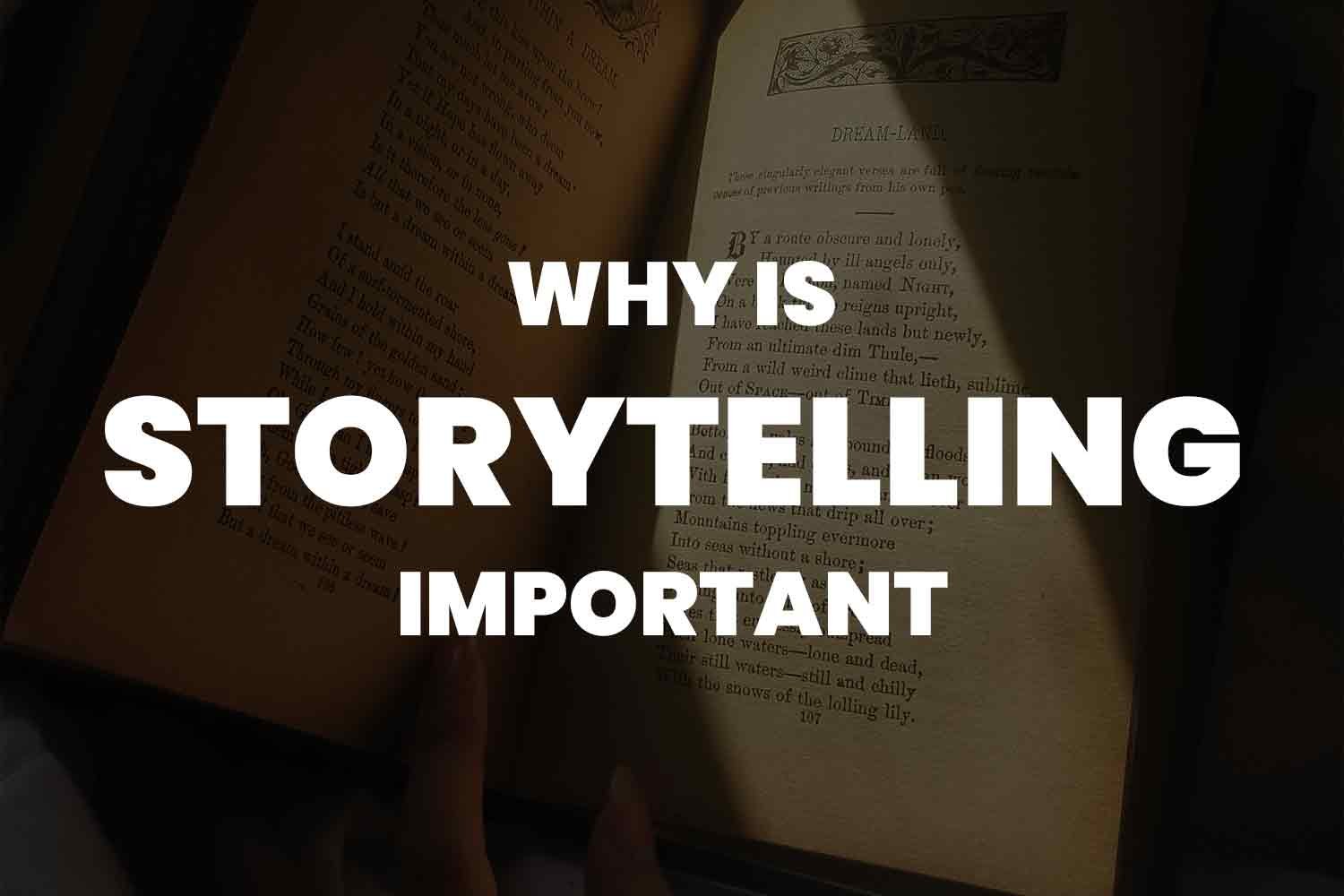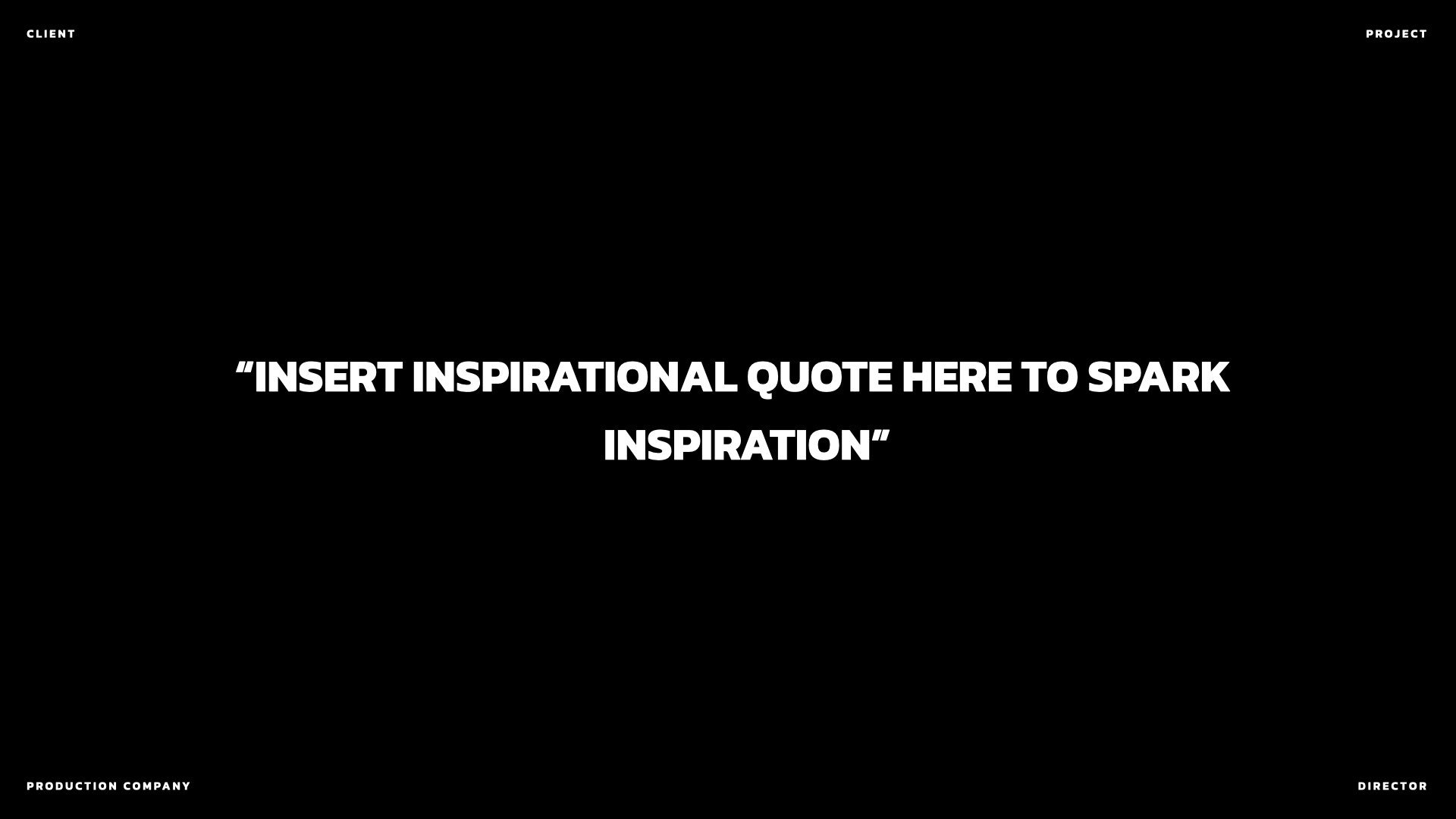Why Is Storytelling Important When Pitching Ideas
Stories have been essential to human culture and communication since the dawn of time. From ancient cave drawings to modern-day movies, storytelling has always played a critical role in making sense of the world around us.
It's no surprise that understanding the power of storytelling is a must in the business world. In this article, we'll dive deep into why storytelling is important when pitching ideas and how you can become a better storyteller.
Why Is Storytelling Important?
Telling stories has been a powerful tool throughout history to teach, entertain, and share knowledge.
Oral storytelling is a prime example of how humans have passed down their experiences and wisdom from generation to generation. Our brains are wired to create and listen to stories, allowing us to process, retain, and apply the information presented in them.
When it comes to pitching, storytelling serves several critical functions:
Engaging the audience: Stories can pique your clients' interest and hold their attention throughout the presentation. They serve as a vehicle for delivering complex information in an accessible and relatable way.
Creating emotional connections: By incorporating personal anecdotes or evoking shared experiences, you can create a bond with your clients that goes beyond the facts and figures of your proposal.
Differentiating your pitch: In a sea of similar pitches, a well-told story can set you apart from your competitors and make your ideas more memorable.
Demonstrating understanding: Storytelling shows that you truly understand your client's needs, challenges, and aspirations and have the perfect solution to address them.
The Psychology of Storytelling
When you tell a story, you create a connection with your audience that requires a simple list of facts or data.
Stories engage our emotions, allowing us to empathize with the characters and relate to their experiences. This emotional connection can lead to a better understanding of the presented idea and a more profound impact of good story on the audience's decision-making process.
Understanding the psychology behind storytelling can help you create more persuasive pitch documents. Here are a few fundamental psychological principles to consider:
The human brain loves stories: Our brains are wired to seek out and process information through stories. Narrative structures help us make sense of the world around us, and our brains are more likely to remember stories than a list of facts.
Emotions drive decision-making: Research has shown that emotions play a significant role in our decision-making process. By evoking emotions through storytelling, we can influence our clients' choices and persuade them to choose our ideas.
Mirror neurons and empathy: When we hear a story, our brains activate mirror neurons, allowing us to sympathize with the characters and situations described. This empathic connection can be a powerful, persuasive tool in pitching documents.
Influencing Public Opinion and Driving Positive Change
The power of storytelling extends beyond creating connections – it can also shape public opinion and drive positive change.
A compelling story can inspire people to take action or rally behind a cause, making it an incredibly effective tool for influencing others.
Storytelling in the Business World: Pitching Ideas That Resonate
In the world of business, storytelling is important when pitching ideas. A good story can distinguish between a successful pitch and a failed one. By incorporating storytelling into your presentations, you can create a more engaging and memorable experience for your audience, increasing the likelihood that they will support your new idea or vision.
Using Your Own Stories to Illustrate Your Point
One powerful way to incorporate storytelling into your pitches and messages is by sharing your experiences. By weaving your own stories into your presentation, you create a personal connection with your audience and provide real-life examples that help illustrate your point.
The Importance of Characters in Your Stories
When crafting your stories, developing solid and relatable characters that your audience can connect with is essential. The more your audience can identify with the characters in your story, the more likely they are to understand and support your message.
Becoming a Better Storyteller: Tips for Success
Becoming a good storyteller takes practice, but the rewards are worth the effort. Here are some tips to help you become a more effective storyteller:
Keep it simple: When telling a story, it's crucial not to overwhelm your audience with too much information. Focus on the most important points and eliminate any unnecessary details.
Create a strong beginning and end: A captivating opening will grab your audience's attention, while a powerful conclusion will leave a lasting impression.
Use vivid language: Descriptive words and phrases will help paint a vivid picture in your audience's mind, making your story more engaging and memorable.
Incorporate conflict: Challenges and obstacles add drama to your story, making it more interesting and relatable.
Practice, practice, practice: The more you tell stories, the better you'll become at it. Practice your storytelling skills in various situations – from casual conversations to formal presentations – to refine your technique and gain confidence.
Tips for Mastering the Art of Storytelling
Ready to start captivating clients with your pitch documents? Here are some tips to help you master the art of storytelling:
Know your audience: Understand your client's preferences, interests, and expectations. This will allow you to craft stories that resonate with them and address their specific concerns.
Be authentic: Share genuine experiences and emotions, and avoid exaggerating or fabricating stories. Authenticity is key to building trust and credibility with your clients.
Practice, practice, practice: The more you practice telling stories, the more comfortable and confident you will become in your storytelling abilities.
Learn from the masters: Study the work of great storytellers, such as filmmakers, novelists, and TED speakers. Analyze their techniques and incorporate them into your own storytelling repertoire.
Stay adaptable: Be prepared to adjust your story based on your client's reactions, questions, or feedback. This will demonstrate your flexibility and responsiveness to their needs.
The Role of Stories in Teaching
From a young age, we are exposed to stories to learn about the world. Teachers use stories to convey complex ideas and concepts in an engaging and easy-to-understand way.
By incorporating storytelling into your teaching methods, you can create a more immersive and enjoyable learning experience for your students.
Storytelling Beyond Pitch Documents
While we've focused on incorporating storytelling into pitch documents, it's important to recognize that the power of storytelling extends far beyond this specific context.
In all aspects of your business – from marketing and sales to customer service and employee engagement – storytelling can be a powerful tool for connecting with your audience and achieving your goals.
Here are a few additional ways in which storytelling can benefit your business:
Content marketing: Share engaging stories through blog posts, videos, and social media to connect with potential customers and build brand awareness.
Sales presentations: Use stories to illustrate the benefits of your products or services, making it easier for prospects to envision how they would fit into their lives.
Internal communications: Foster a strong company culture by sharing stories highlighting your organization's values, mission, and successes.
Team building: Encourage employees to share their own stories and experiences, helping to create a sense of camaraderie and shared purpose.
Customer service: Empathize with your customers by sharing stories demonstrating your understanding of their concerns, and use storytelling to explain how your solutions can address their needs.
By using good stories and embracing storytelling across all facets of your business, you can create deeper connections with your clients, employees, and stakeholders – ultimately driving success and growth for your organization.
The Future of Storytelling: Embracing New Technologies and Platforms
As technology continues to advance, the ways in which we tell and consume stories are constantly evolving.
From podcasts and virtual reality experiences to interactive narratives and AI-driven storytelling, the possibilities for sharing and engaging with stories are virtually limitless.
The Power of Storytelling in a Digital World
In a world saturated with information, the power of storytelling is more important than ever. By leveraging the latest tools and platforms, you can create more immersive and engaging stories that resonate with your audience and leave a lasting impact.
Conclusion: Embracing the Power of Storytelling
In conclusion, storytelling is a powerful tool that can help you connect with your audience, convey complex ideas, and drive positive change.
By understanding the importance of storytelling in the business world and honing your storytelling skills, you can create more engaging and memorable experiences for your audience, increasing the likelihood of your ideas being embraced and adopted.
Remember, the power of storytelling lies not just in the words we use but also in our ability to create connections, evoke emotions, and inspire action.
By learning and embracing storytelling as an essential part of our lives, we can foster a more empathetic, understanding, and connected world.
Frequently Asked Questions About Storytelling When Pitching Ideas (FAQs)
What is the importance of storytelling in pitching ideas?
Storytelling is integral to pitching ideas because it allows you to connect with your audience more deeply.
Humans are naturally drawn to stories as they create a sense of relatability and help us feel empathy. Good storytellers can captivate their audience, making their pitch more memorable and impactful.
How can I create stories when pitching ideas?
There are many ways to create stories when pitching ideas. Start by identifying the main points you want to convey and think about real-life examples or situations that can illustrate them.
Incorporating your experiences or personal life can make the story more authentic and relatable. Remember that a happy ending or a clear resolution can leave a lasting impression on your audience.
What does Harvard Business School say about storytelling?
Harvard Business School emphasizes the importance of storytelling in business communication.
According to Harvard Business Publishing, storytelling is a powerful tool for conveying ideas and making them stick.
They encourage students and professionals to incorporate storytelling into their pitches and presentations to create a more engaging and persuasive experience for the audience.
Are bullet points useful in storytelling?
Bullet points can help organize your thoughts and ensure you cover your story's essential aspects.
However, when presenting your pitch, it's crucial to weave the information from your bullet points into a coherent and engaging narrative rather than simply reading through a list. This will create a more compelling experience for your audience.
How does body language play a role in storytelling?
Body language is an essential part of compelling storytelling. When pitching ideas, your body language can convey enthusiasm, confidence, and sincerity, which can help create a stronger connection with your audience.
Additionally, gestures and maintaining eye contact help emphasize key points and keep your audience engaged.
What is the best way to become a good storyteller?
The best way to become a good storyteller is to practice and learn from others. Observe good storytellers and pay attention to their techniques, such as how they structure their stories and use their body language.
Experiment with different storytelling approaches and refine your skills over time. Additionally, read and listen to many stories to expand your knowledge and understanding of different narrative styles.
How can I determine which stories to tell during my pitch?
Think about the message you want to convey and the audience you will present to. Select stories that are relevant to your pitch and relatable to your audience, focusing on those that evoke emotions and demonstrate the value of your ideas.
It may be helpful to prepare a few different stories, allowing you to adjust your pitch based on the audience's reactions and interests.




















































































































